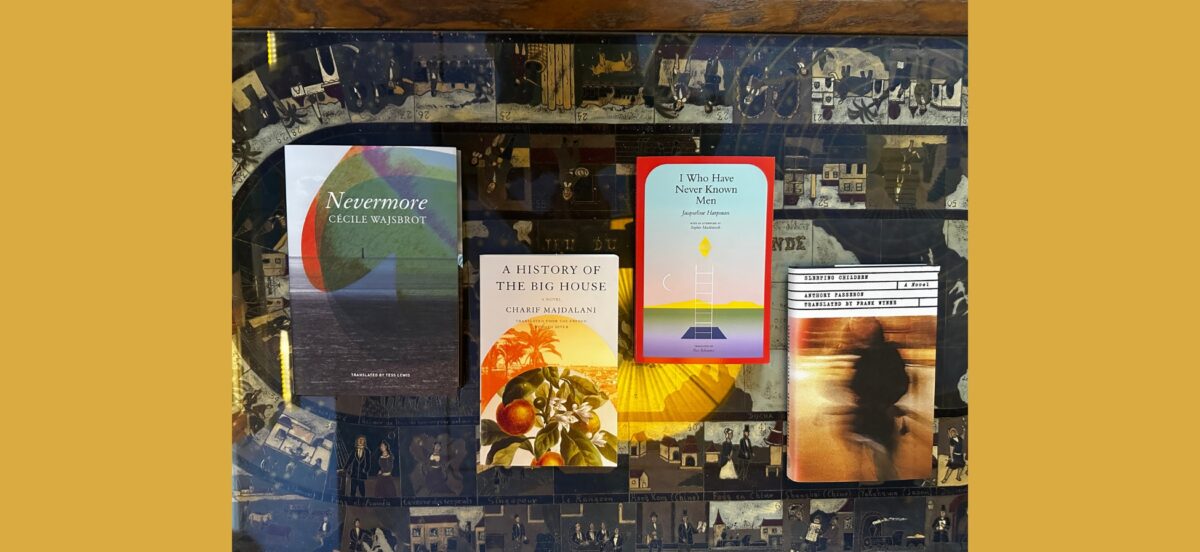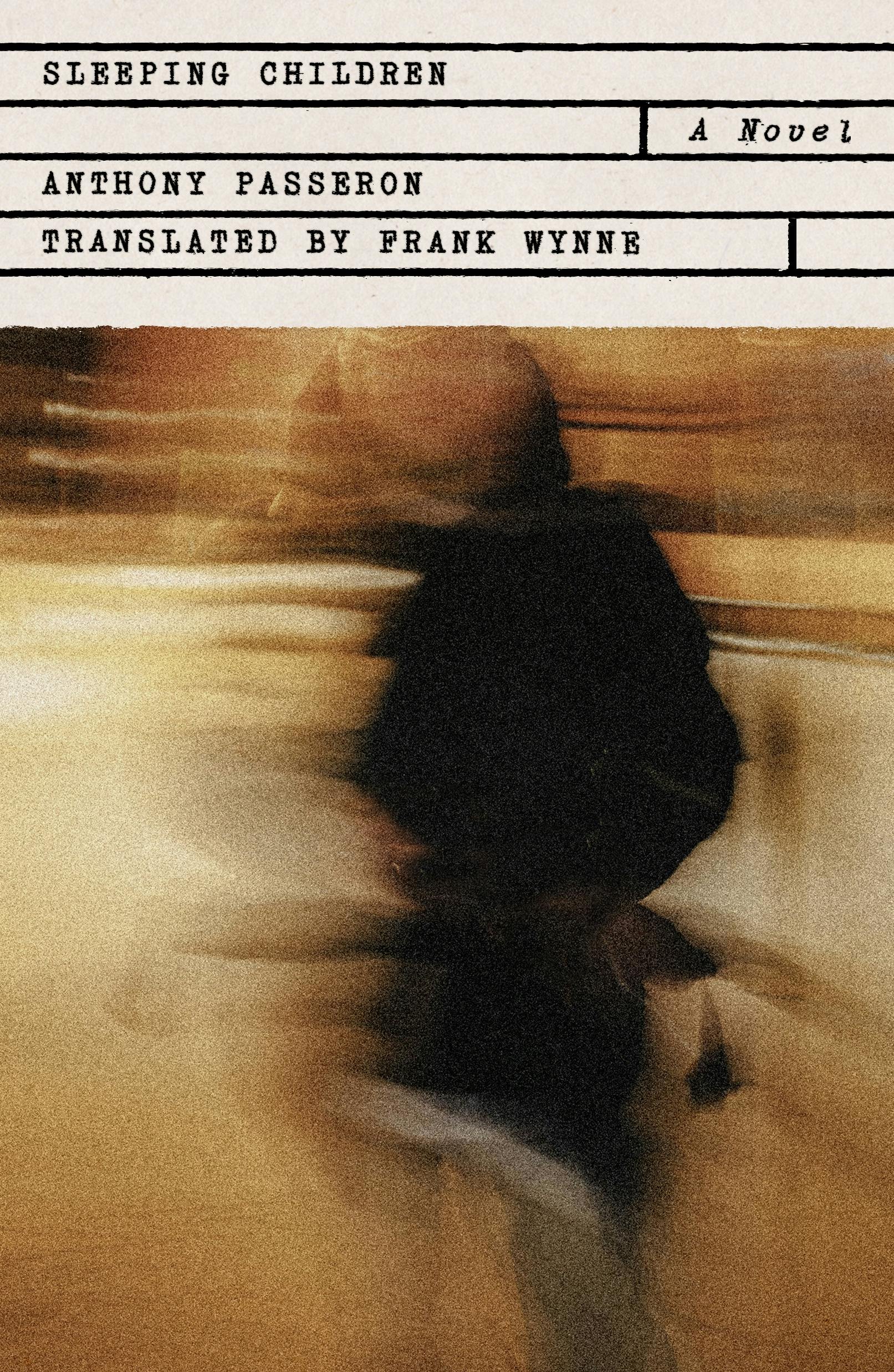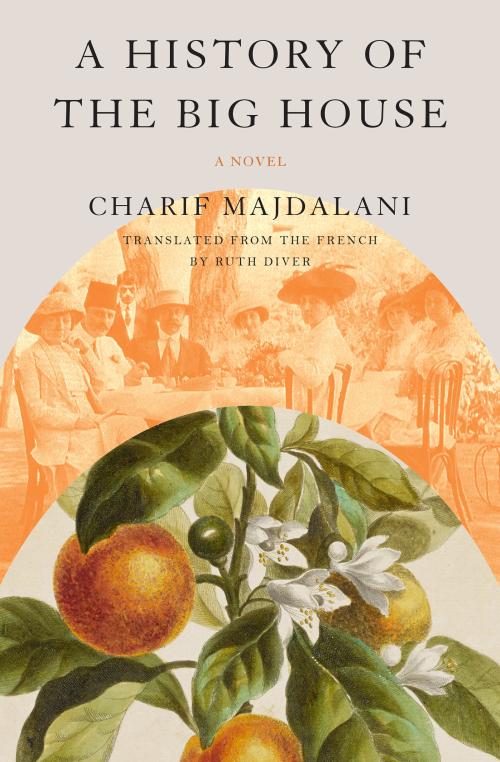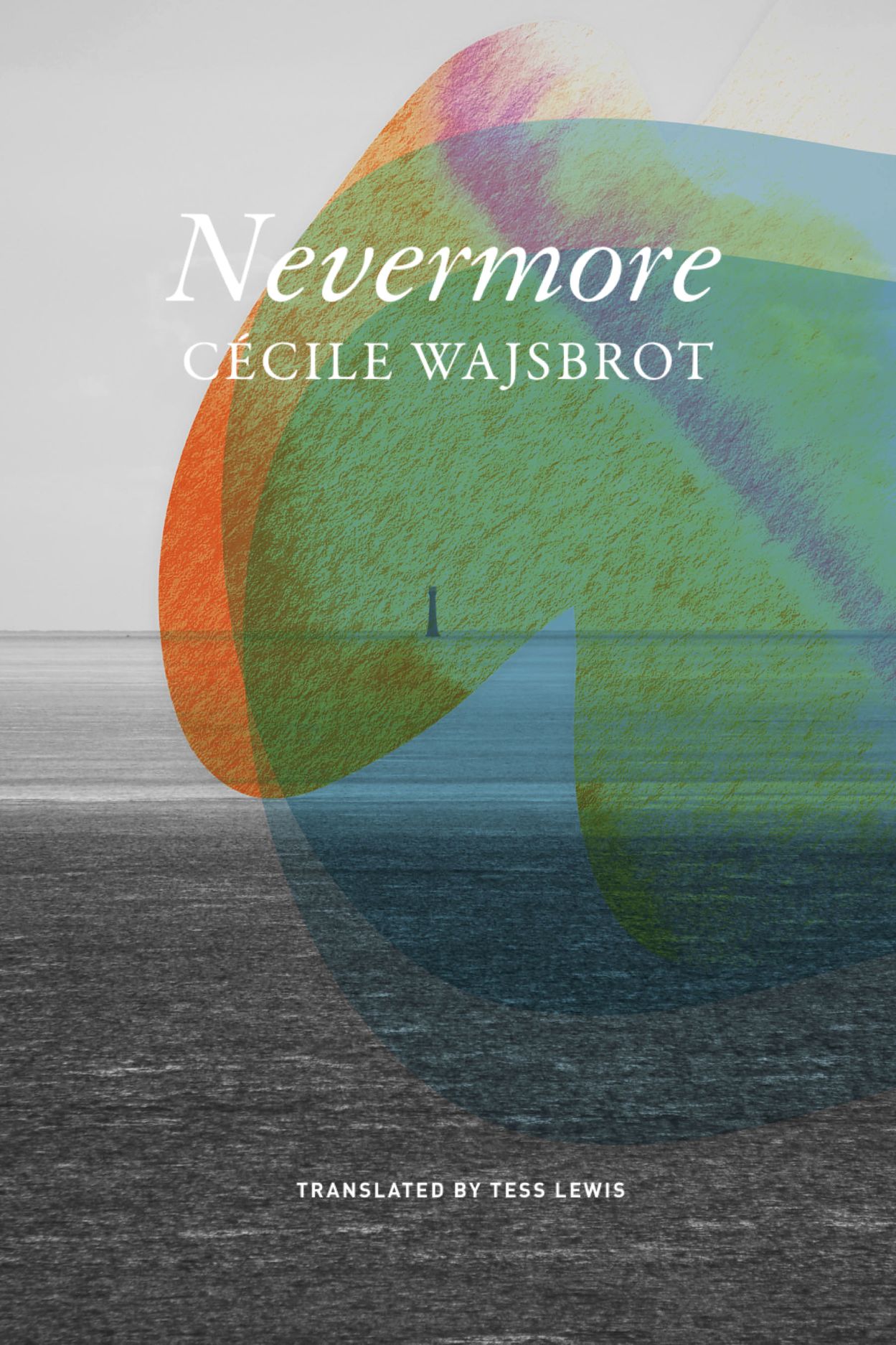4 New Novels Haunted by Silence and Secret

What lingers after catastrophe—personal or historical—is not just loss, but silence. The silence of those who never spoke. The four novels, all translated from the French with great care, in this list—grapple with that silence. They ask: What do we carry forward when the world has shifted beneath our feet? What remains when memory falters, when language fails?
In I Who Have Never Known Men, Jacqueline Harpman strips narrative to its essence, delivering a fable-like tale of captivity and estrangement that reads like a dream you can’t quite wake from. In A History of the Great House, Charif Majdalani conjures the rise and fall of a Lebanese patriarch and the mansion that became a monument to both triumph and decline. Anthony Passeron’s Sleeping Children pierces deeper still—into family trauma, the AIDS crisis, and the intimate devastation of collective denial. And in Nevermore, Cécile Wajsbrot offers a meditation on translation, grief, and impermanence that reverberates through history, literature, and art.
These novels span decades and continents, yet all orbit the same quiet force: the persistence of memory, and the quiet reckonings it demands. Each is a haunting reminder that the past never truly stays behind us but seeps into our present, line by line.
Reading List
Imagine a girl—raised in an underground cage, watched over by silent guards, surrounded by women who have no memory of how they got there. She has never seen the sky, never touched a tree, never heard music. Then—without warning—she and her cellmates are released.
I Who Have Never Known Men is not dystopian in the usual sense. It’s starker, stranger, and far more unsettling. Jacqueline Harpman crafts a story that feels like myth, parable, and psychological study all at once. The prose is spare and luminous; the questions it raises are anything but. What is memory, when no one else remembers? What is freedom, when there’s nothing left to run to?
You’ll read this novel in a single breath, then spend weeks haunted by its silences.
I Who have Never Known Men, by Jacqueline Harpman, translated by Ros Schwartz, Transit Books.
Click here to purchase this book with us
In this haunting debut, Anthony Passeron turns a deeply personal family story into a powerful reckoning with silence, stigma, and the history of the AIDS crisis in France.
Sleeping Children begins with a simple, devastating question: how does a family choose what to remember—and what to forget? Passeron traces the rise of his working-class family in the hills above Nice and the slow unraveling that follows his uncle Désiré’s diagnosis. At once intimate and expansive, the book moves between rural France and American hospitals, between family legend and public health, weaving personal grief with meticulous research.
Blending sociological inquiry with personal memory, Sleeping Children captures the profound isolation faced by families at a time when the virus was still unknown, denial reigned, and those infected were pushed to the margins. A story of silence, stigma, and the long shadow of loss.
Sleeping Children hit readers with an uncommon emotional precision and quiet force.
Sleeping Children by Anthony Passeron, trans. by Frank Wynne, FSG
Click here to purchase this book with us
Every so often, a novel comes along that reads like a whispered family secret—half-remembered, deeply felt, and impossible to shake. Charif Majdalani’s A History of the Great House is one of those rare books.
Set in Lebanon at the turn of the 20th century, the novel traces the rise and fall of Wakim Nassar, a man who begins as an exile and ends as a patriarch. In the hills above Beirut, he builds a life—and a sprawling mansion known as the Great House—amidst the orchards, a towering symbol of his ambition and triumph. People admired it from afar.
Majdalani writes with elegance and quiet intensity, folding time into itself as generations rise and recede. This is the story of the Nassar clan’s ascent and undoing, a vibrant, sweeping novel filled with twists, unforgettable characters, and the rhythms of a changing Lebanon—from the twilight of the Ottoman Empire to the turbulence of the French Mandate.
A History of The Big House: A Novel, Charif Majdalani, trans. by Ruth Diver, Other Press
Click here to purchase this book with us.
An unnamed translator, mourning the death of a close friend, retreats to Dresden to take on the task of translating the Time Passes section of Virginia Woolf’s To the Lighthouse. She arrives in a city with which she has no connection, where neither her native tongue nor Woolf’s is spoken—an act of quiet erasure, and quiet defiance. Immersed in Woolf’s luminous meditation on time and absence, she finds herself suspended between languages, between past and present, between devastation and renewal.
As she grapples with the imperfect art of translation, her reflections begin to spiral outward—from personal grief to collective memory, from the bombings of Dresden to Chernobyl, from the ruins of Foula to Debussy’s La cathédrale engloutie and Sugimoto’s ghostly seascapes. What emerges is a work of profound resonance: a meditation on disappearance, resilience, and the fragile architectures we build to hold what’s been lost.
In Tess Lewis’s visionary translation, Cécile Wajsbrot’s Nevermore becomes a quietly devastating study in the echo of memory. Readers of W.G. Sebald, or Marguerite Duras will find much to admire in this deeply interior, exquisitely constructed novel.
Nevermore by Cécile Wajsbrot, trans by Tess Lewis, Seagull Books
Click here to purchase this book with us.






